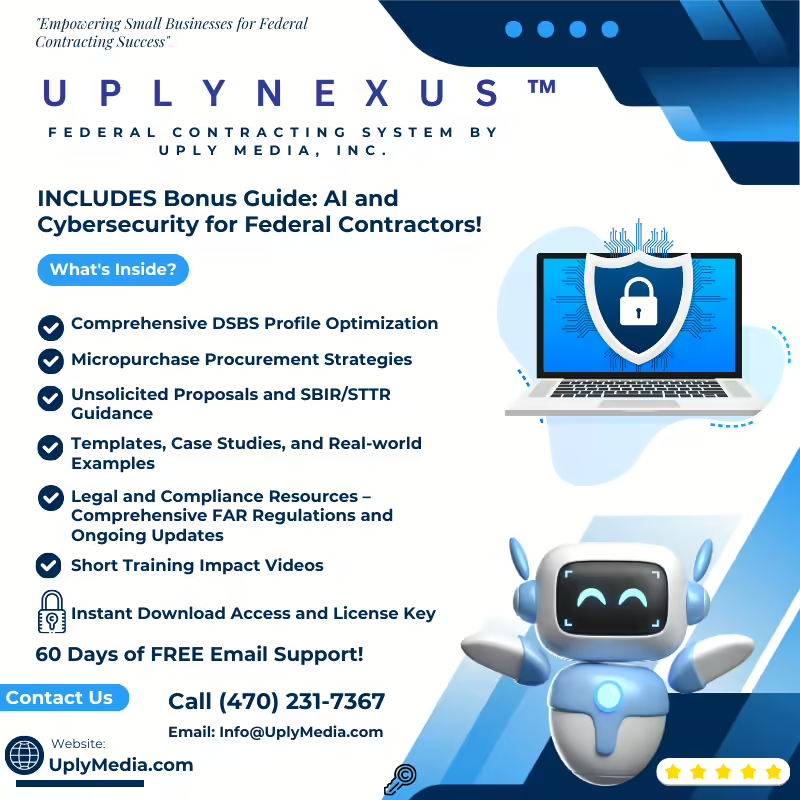Unlocking Opportunities: Government Contracts for Small Businesses
Navigating the world of government contracts can seem daunting for small businesses, yet it offers unparalleled opportunities for growth and stability. As we look towards 2024, government contracts for small businesses continue to be a vital avenue for revenue and expansion.
These contracts not only provide a steady stream of income but also open doors to new networks and markets. With the federal government allocating billions of dollars annually to small enterprises, understanding how to tap into these resources could be transformative for your business.
This article aims to shed light on the most promising government contracts available for small businesses, helping you leverage these opportunities for sustained success. By the end, you’ll have a clear understanding of how to position your business to win these contracts and propel your business growth.
Navigating Federal Contract Opportunities
Federal contracts offer a wealth of opportunities for small businesses looking to expand their market reach. These contracts are specifically set aside to ensure that small businesses have a fair chance to compete alongside larger corporations.
To navigate these opportunities, it’s crucial to understand the types of contracts available, such as fixed-price contracts, cost-reimbursement contracts, and time-and-materials contracts.
Each type has its own set of requirements and benefits, making it essential for small businesses to assess which suits their operational capabilities the best. Additionally, federal agencies often have specific goals for small business participation, including those owned by women, veterans, or economically disadvantaged individuals, further increasing the chances of securing a contract.

Key Steps to Securing Government Contracts
Securing government contracts for small businesses requires a strategic approach. The first step is registering your business with the System for Award Management (SAM), which is a prerequisite for bidding on federal contracts.
It’s vital to ensure that your business profile is detailed and up-to-date to enhance your visibility to federal agencies. Next, familiarize yourself with the Federal Acquisition Regulation (FAR), which governs all federal procurement processes. Understanding these regulations can help you navigate the complexities of government contracts more effectively.
Building relationships with procurement officers through networking events and industry days can also significantly boost your chances of winning contracts by keeping your business top-of-mind when opportunities arise.
Advantages of B2B Government Contracts
Engaging in B2B government contracts can provide small businesses with a competitive edge. These contracts often come with long-term stability and predictable revenue streams, which can be pivotal in planning and executing growth strategies.
Additionally, government contracts can enhance a company’s credibility and reputation in the marketplace, often leading to further opportunities in the private sector. The rigorous standards required for government contracts ensure that your business operations are optimized for efficiency and compliance, which can be a strong selling point for potential private sector clients.
Moreover, the experience and expertise gained from fulfilling government contracts can position your business as a leader in your industry, opening doors to more lucrative projects and partnerships.
Harnessing Government Contracts for Small Business Growth
Government contracts for small businesses present a myriad of opportunities for growth and expansion. By understanding the intricacies of the contracting process and leveraging available resources, small businesses can position themselves to win lucrative contracts in 2024.
It’s crucial to remain proactive, continuously updating your strategies and building relationships within the federal contracting community. As you navigate this landscape, remember that persistence and preparation are key to unlocking the potential that government contracts hold.
FAQ
What types of government contracts are available specifically for small businesses?
Government agencies offer several contract types tailored for small businesses, such as 8(a) Business Development, HUBZone, Women-Owned Small Business (WOSB), and Service-Disabled Veteran-Owned Small Business (SDVOSB) contracts. Additionally, contracts under the Small Business Innovation Research (SBIR) and Small Business Technology Transfer (STTR) programs are available, often focusing on R&D and technological innovation.
How can small businesses find government contracts?
Small businesses can find contract opportunities on websites like SAM.gov, which lists current federal contract opportunities. The SBA’s SubNet portal also lists subcontracting opportunities, and agencies such as the Department of Defense and GSA offer resources and matchmaking events. Joining industry associations and networking with large prime contractors can also lead to subcontracting opportunities.
What qualifications are needed to pursue government contracts as a small business?
Qualifications vary depending on the contract type, but small businesses generally must meet NAICS-based size standards, be registered in SAM.gov, and may need certifications such as 8(a), HUBZone, WOSB, or SDVOSB, depending on the contract. Specialized contracts may also require proven expertise or previous experience in the relevant field.
What are the top industries for small businesses in federal contracting?
High-demand industries for small businesses in federal contracting include information technology (IT), cybersecurity, construction, healthcare, logistics, and professional services. Emerging areas like AI, cybersecurity, and renewable energy solutions are also seeing increased contracting opportunities as the government modernizes its operations and infrastructure.
What strategies can small businesses use to increase their chances of winning government contracts?
Small businesses should focus on building strong past performance records, networking with agency decision-makers, and teaming up with other contractors to fulfill larger contracts. Certifications like SDVOSB, HUBZone, or 8(a) can give businesses an edge. Additionally, participating in government contracting events and understanding the agency’s needs and mission objectives can improve a business’s chances of securing a contract.


Leave a Reply